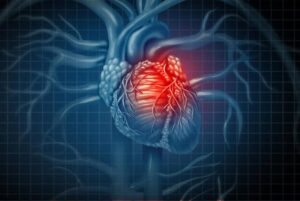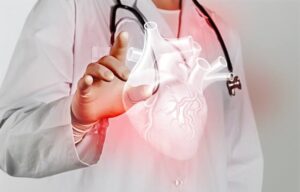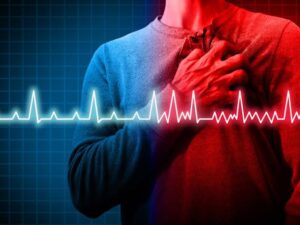Introduction
Heart attacks, also known as myocardial infarctions, are life-threatening events that occur when blood flow to a section of the heart muscle becomes blocked or reduced. They are a leading cause of death worldwide, making it crucial to understand the major factors that contribute to heart attacks, recognize their symptoms, and explore remedies for prevention and treatment. In this comprehensive article, we will delve into these critical aspects of heart attacks.
Major Factors Leading to Heart Attacks
1. Atherosclerosis
Atherosclerosis, the buildup of fatty deposits (plaques) in the arteries, is one of the primary factors contributing to heart attacks. Over time, these plaques can narrow or block the coronary arteries, reducing blood flow to the heart. This condition is often referred to as coronary artery disease (CAD).
2. High Blood Pressure (Hypertension)
Hypertension, or high blood pressure, strains the heart and blood vessels, increasing the risk of a heart attack. Consistently elevated blood pressure can lead to the weakening of the heart muscle and contribute to atherosclerosis.
3. High Cholesterol Levels
Elevated levels of LDL (low-density lipoprotein) cholesterol, often referred to as “bad” cholesterol, can lead to the accumulation of plaques in the arteries. These plaques can rupture and cause blood clots, further obstructing blood flow to the heart.
4. Smoking
Tobacco smoke contains harmful chemicals that can damage blood vessels, reduce oxygen in the blood, and increase the risk of blood clots. Smokers are at a significantly higher risk of heart attacks than non-smokers.
5. Diabetes
Diabetes can damage blood vessels and nerves, increasing the likelihood of atherosclerosis. Uncontrolled blood sugar levels can also contribute to inflammation, further raising the risk of heart attacks.

6. Obesity
Obesity is associated with various risk factors for heart attacks, including high blood pressure, high cholesterol, and diabetes. It also places extra strain on the heart.
7. Family History and Genetics
A family history of heart disease can increase an individual’s susceptibility to heart attacks. Genetic factors may also play a role in the development of cardiovascular conditions.
8. Sedentary Lifestyle
A lack of physical activity can lead to obesity and other risk factors for heart attacks. Regular exercise can help maintain a healthy weight and improve overall cardiovascular health.
9. Stress
Chronic stress can contribute to heart attacks by elevating blood pressure and increasing inflammation. Stress management techniques, such as meditation and yoga, may help reduce this risk.
Common Symptoms of Heart Attacks
Recognizing the symptoms of a heart attack is crucial for seeking prompt medical attention. While symptoms can vary from person to person, here are the most common ones:
1. Chest Pain or Discomfort
Chest pain or discomfort is often described as a squeezing, fullness, pressure, or burning sensation. It can last for several minutes or come and go.
2. Pain or Discomfort in Other Areas
Pain or discomfort may also radiate to the arms, neck, jaw, shoulder, back, or stomach. Some individuals experience pain in the upper abdomen or between the shoulder blades.

3. Shortness of Breath
Shortness of breath may occur along with or before chest pain. It can be mild or severe.
4. Cold Sweat, Nausea, or Lightheadedness
Feeling lightheaded, nauseous, or breaking into a cold sweat can be additional symptoms of a heart attack.
5. Fatigue
Unexplained fatigue, especially when it occurs with other symptoms, can be a sign of a heart attack.
Remedies and Prevention
1. Emergency Medical Attention
If you suspect you or someone else is experiencing a heart attack, call emergency services immediately. Early medical intervention can be life-saving.
2. Aspirin
Chewing an aspirin tablet (provided there are no allergies or contraindications) can help prevent blood clot formation during a heart attack.
3. Medications
Upon diagnosis, healthcare providers may prescribe medications to manage risk factors like high blood pressure, cholesterol, and diabetes.
4. Lifestyle Changes
Adopting a heart-healthy lifestyle can significantly reduce the risk of heart attacks. This includes maintaining a balanced diet, regular exercise, smoking cessation, and stress management.

5. Car000h diac Rehabilitation
For individuals who have experienced a heart attack, cardiac rehabilitation programs can provide guidance on exercise, nutrition, and lifestyle changes to aid recovery.
6. Medical Procedures
In some cases, medical procedures like angioplasty and stent placement or coronary artery bypass grafting (CABG) may be necessary to improve blood flow to the heart.00000000⁰0
7. MedicAlert Bracelets
Wearing a MedicAlert bracelet can provide important medical information to first responders in case of an emergency.
Treatment of Heart Attacks
A. Emergency Care
If someone is suspected of having a heart attack, seeking immediate medical attention is crucial. Emergency medical services should be called, and the person should be taken to the hospital.
B. Medications
Upon arrival at the hospital, various medications may be administered, including antiplatelet drugs to prevent further clotting, thrombolytic therapy to dissolve clots, and pain relievers.
C. Cardiac Procedures
In cases where a coronary artery is severely blocked, procedures like angioplasty and stent placement or coronary artery bypass surgery may be performed to restore blood flow to the heart.

D. Cardiac Rehabilitation
After a heart attack, cardiac rehabilitation programs help patients recover through supervised exercise, education on heart-healthy lifestyles, and emotional support.
Solar System: Structure, Formation, Evolution and Human Endeavors
Conclusion
Heart attacks are a significant health concern globally, but understanding the major factors, recognizing symptoms, and knowing the remedies and prevention strategies can help reduce their impact. Maintaining a heart-healthy lifestyle, seeking medical attention promptly when needed, and following the advice of healthcare professionals are essential steps toward preventing and managing heart attacks. By prioritizing heart health, we can work towards reducing the incidence and consequences of this life-threatening condition.
















Thanks for sharing. I read many of your blog posts, cool, your blog is very good.